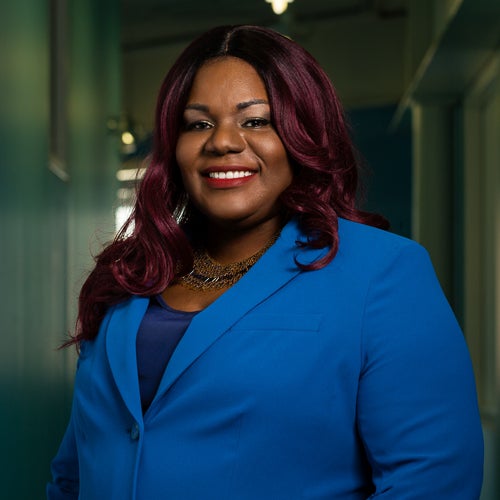
As we come to the end of Black History Month (BHM) celebration, Tracelyn Cornelius, Sustainability Management graduate scholar in the School of Environment, Enterprise, and Development (SEED) shares her experience and thoughts on anti-racism, equity, diversity, and inclusion implementation, program design and best practices.
Tracelyn also supports strategic communications for the President’s Anti-racism Taskforce (PART) and provides guidance to senior leaders on communications related to tackling systemic racism at the University of Waterloo.
What impactful changes would you like to see at UWaterloo and across Canada?
One of the major issues that Canada urgently needs to address is performative activism, where institutions show support through carefully crafted statements of commitment online but fail to take the concrete actions necessary for transformational change. If we as Canadians are to sincerely cultivate inclusive communities, where everyone feels respected, safe and are empowered to thrive, we must be willing to do the work.
Another issue that I would love to see addressed is denying that racism exists. Racism exists in Canada. Systemic racism is deeply rooted in systems that historically were designed to benefit one group while disadvantaging others. Recognizing that such power dynamics continue to be upheld and taking meaningful actions to dismantle such systems will undoubtedly contribute to building and sustaining a more equitable country.
What has been your experience over the years?
I’ve been supporting the principles, policies, and practices of Equity, Diversity, Inclusion (EDI) in all aspects of my professional and academic work since my first exposure to EDI, and Anti-racism more than 20 years ago, when I complemented a series of Black studies courses while completing undergraduate studies. Before being seconded into the role of Anti-racism Communications manager, I worked as the International Communications Specialist at Waterloo International. I also worked as a Communications Specialist at a First Nations school board. In terms of my academic life, I am a PhD candidate in Sustainability Management at the University of Waterloo, researching how EDI and anti-racism can be operationalized within high-level sustainability projects. I recently completed a Master of Environment and Business (MEB) from the University of Waterloo, where I completed research on implementing anti-racism within post-secondary institutions.
How are you contributing to make the changes happen?
I have been responsible for applying anti-oppression, anti-racism, and decolonizing lenses to provide guidance to senior leaders on communications related to tackling systemic racism. I am committed to working collaboratively with the University community to formulate, articulate, and implement EDI and Anti-racism principles and values. At UWaterloo, I work closely with the PART and its executive-designate, Charmaine Dean, vice-president Research and International to support planning and coordination the group’s activities. I am also a member of the Employment Equity working group where I help to apply an anti-racism lens to employment-related practices, communications.
Do you have project(s) you are working on or have worked on this regard?
Currently, I’m a member of the Inclusive Communications Steering Committee responsible for directing and coordinating activities for the development of an Inclusive Communications Style guide. This style guide is expected to be a resource to help ensure that communications all communications are inclusive, respectful, and accurate and reflect the University’s goals equity, diversity, and inclusion.
I’m also frequently invited to give presentations and engage with the campus community on matters and topics related to anti-racism. I’ve had the pleasure of sharing my master’s research on implementing anti-racism in universities with a few groups.